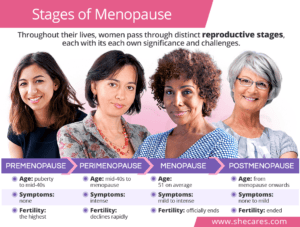In today’s fast-paced world, women often find themselves juggling multiple responsibilities, from managing careers to nurturing families. Amid these demands, it’s crucial for women to prioritize self-care and wellness. One powerful way to achieve this is through regular massages. Massages offer numerous physical, emotional, and mental benefits tailored specifically to women’s needs.
Puffiness, often experienced in areas such as the face and limbs, can result from fluid retention, lack of circulation, or inflammation. Massage techniques such as lymphatic drainage can stimulate lymphatic flow, helping to reduce puffiness by eliminating excess fluid and toxins from the body (Shetty, 2015).
Massage can alleviate symptoms commonly associated with menopause, such as hot flashes and night sweats. The calming effects of massage therapy help regulate body temperature and promote a sense of well-being, providing much-needed relief from these uncomfortable symptoms (). Additionally, massages can help improve circulation and reduce the risk of conditions such as osteoporosis, which becomes more prevalent during menopause (Saetung, 2013).

Massages offer profound emotional and mental well-being advantages for women who experience mood swings, anxiety, and depression due to fluctuating hormone levels. Regular massages provide a safe and nurturing environment for women to release emotional tension and restore inner balance (Edge, 2003).

Massages can help alleviate insomnia. The relaxation induced by massage therapy promotes better sleep quality, helping women achieve restorative rest (Ko, et al., 2014). Improved sleep contributes to overall mental health and cognitive function, enhancing mood, concentration, and overall quality of life.

- Self-care and empowerment
Engaging in regular massages is an act of self-care and empowerment for women. In a society that often overlooks the unique challenges women face during this life stage, prioritizing self-care becomes essential. By investing in massages, women affirm their worth and prioritize their health and well-being, reclaiming control over their bodies and experiences (Smith, et al., 2009).

Moreover, massages provide an opportunity for women to reconnect with their bodies and cultivate body awareness. During menopause, women may experience changes in body image and self-esteem due to hormonal fluctuations and physical symptoms. Through touch and mindful awareness, massages offer a space for women to embrace their bodies with acceptance and appreciation, fostering a sense of embodiment and self-love.
From alleviating muscle tension and menopausal symptoms to promoting relaxation, stress relief, reduction of puffiness, and improved sleep quality, massages are a powerful tool for women’s holistic health. By prioritizing regular massages as part of their self-care routine, women can navigate the challenges of menopause with grace and resilience, embracing this transformative life stage with vitality and joy.
References:
Shetty GB, Mooventhan A, Anagha N. Effect of electro-acupuncture, massage, mud, and sauna therapies in patient with rheumatoid arthritis. J Ayurveda Integr Med. 2015 Oct-Dec;6(4):295-9. doi: 10.4103/0975-9476.172415. PMID: 26834431; PMCID: PMC4719492.
(2012) Effect of therapeutic massage on insomnia and climacteric symptoms in postmenopausal women, Climacteric, 15:1, 21-29, DOI: 10.3109/13697137.2011.587557
Saetung, S., Chailurkit, Lo. & Ongphiphadhanakul, B. Thai traditional massage increases biochemical markers of bone formation in postmenopausal women: a randomized crossover trial. BMC Complement Altern Med 13, 69 (2013). https://doi.org/10.1186/1472-6882-13-69
Edge, J., A pilot study addressing the effect of aromatherapy massage on mood, anxiety and relaxation in adult mental health,
Complementary Therapies in Nursing and Midwifery, Volume 9, Issue 2, (2003).
Yi-Li Ko, Hsiu-Jung Lee, Randomised controlled trial of the effectiveness of using back massage to improve sleep quality among Taiwanese insomnia postpartumwomen, Midwifery, Volume 30, Issue 1, (2014).
Joanna M. Smith, S. John Sullivan, G. David Baxter, The culture of massage therapy: Valued elements and the role of comfort, contact, connection and caring, Complementary Therapies in Medicine, Volume 17, Issue 4, (2009)
